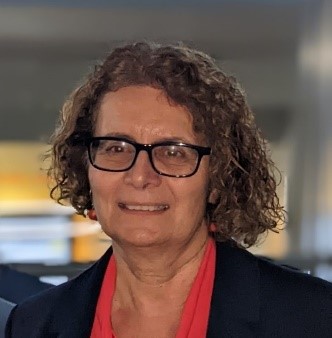- Home
- MARUM Research Seminar 2024
- Maria Kanakidou
Human driven changes in atmospheric deposition of nutrients to the marine ecosystems
Nitrogen is an essential nutrient for the functioning of ecosystems, which are a major source of food for humanity and responsible for the atmospheric oxygen we breathe. Iron and Phosphorus are also required for ecosystem growth. Nitrogen inputs to both terrestrial and marine ecosystems have been modified during the Anthropocene period with consequences such as eutrophication and acidification. Atmospheric deposition is one of the pathways through which reactive nitrogen is reaching the ecosystems. Atmospheric acidity is a key factor in the partitioning of reactive nitrogen species between the gaseous and the particulate phases of the atmosphere, which affects the lifetime of reactive nitrogen in the atmosphere and thus the pattern of its global deposition. Satellites allow the observation of atmospheric columns of ammonia and nitrogen dioxide, resulting from nitrogen emissions, transformations and transport in the global atmosphere. We will discuss recent global chemistry-transport modeling studies focusing on the biogeochemical cycles and atmospheric deposition of nitrogen, iron and phosphorus, the role of atmospheric acidity and organic matter, how these cycles have been affected by human activities and the potential consequences for the ecosystems. We will also discuss recent efforts in improving the total global atmospheric deposition data by measurement-model fusion activities.
Maria Kanakidou is Professor of computational environmental chemistry at the Environmental Chemical Processes Laboratory of the Department of Chemistry of the University of Crete, Greece and an Excellence Chair Professor at the Institute of Environmental Physics of the University of Bremen, Germany. She has a Diploma in Chemistry from the Kapodistrian National University of Athens in Greece and MSc, PhD in Chemistry of Air Pollution and Environmental Physics and Habilitation in Chemistry from the University of Paris 7 in France. She has a 3 years post doc experience in the modeling group of the Nobel Laureat Prof. Paul Crutzen at the MPI for Chemistry and worked for 6 years as senior researcher at the CNRS at Gif-sur-Yvette in France before joining the University of Crete in Greece. Her research links atmospheric chemistry, biogeochemical cycles and climate, as well as organic compounds, aerosols and nutrients. She has received the Vilhelm Bjierknes EGU Medal for atmospheric sciences in 2016 and a Von Humboldt Research Award in 2019. She is a member of the GESAMP (Group of Experts on the Scientific Aspects of Marine Environmental Pollution) WG 38, the SOLAS (Surface Ocean Low Atmosphere Study) and the MMF-GTAD (Measurement-Model Fusion for Global Total Atmospheric Deposition) steering groups and an honorary member of the International Commission on Atmospheric Chemistry and Global Pollution (ICACGP) of the International Association of Meteorology and Atmospheric Sciences.



